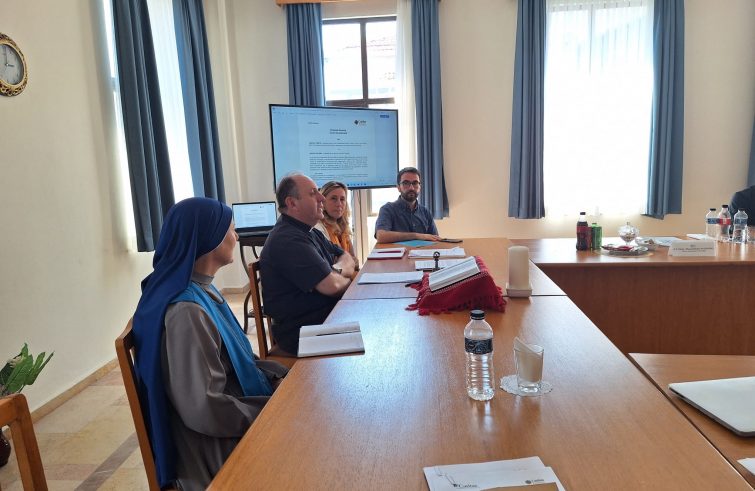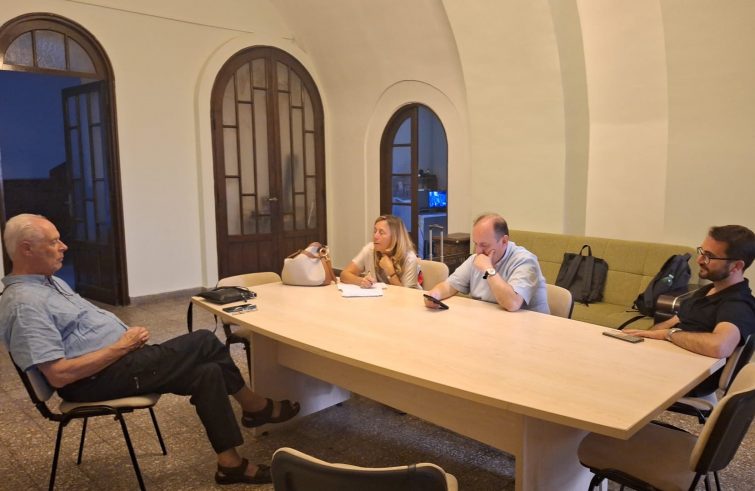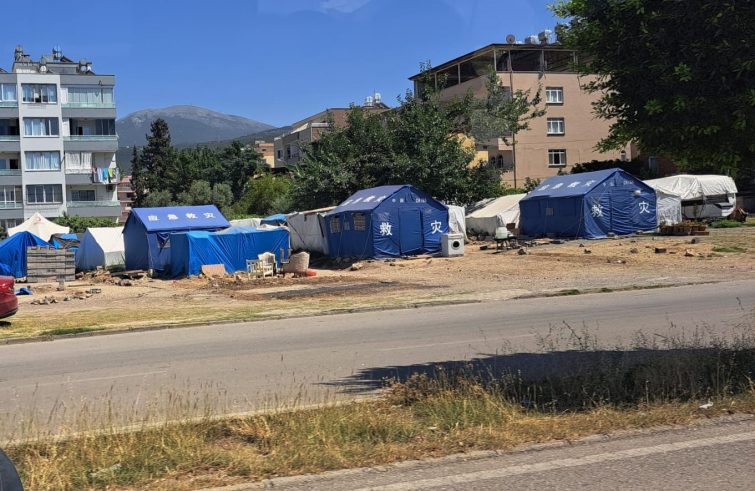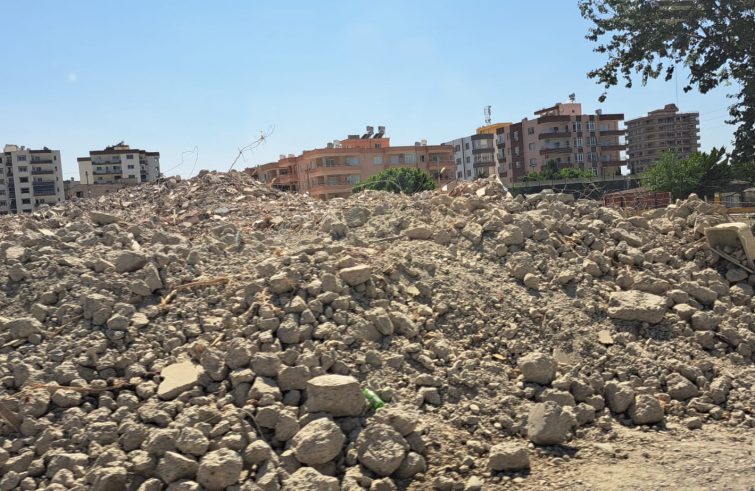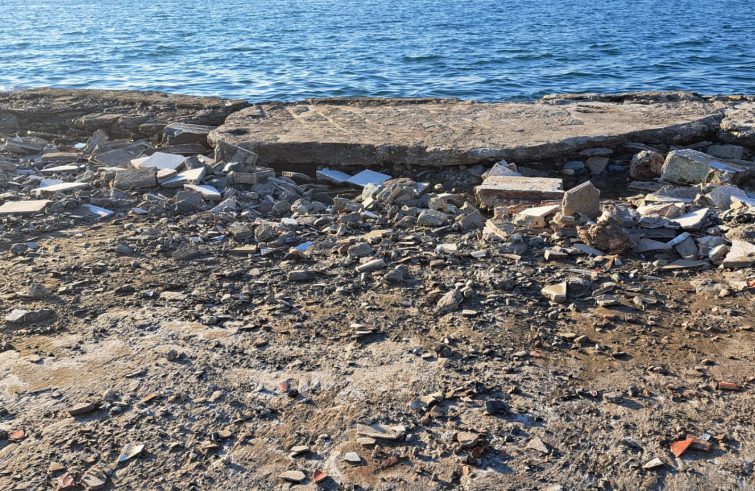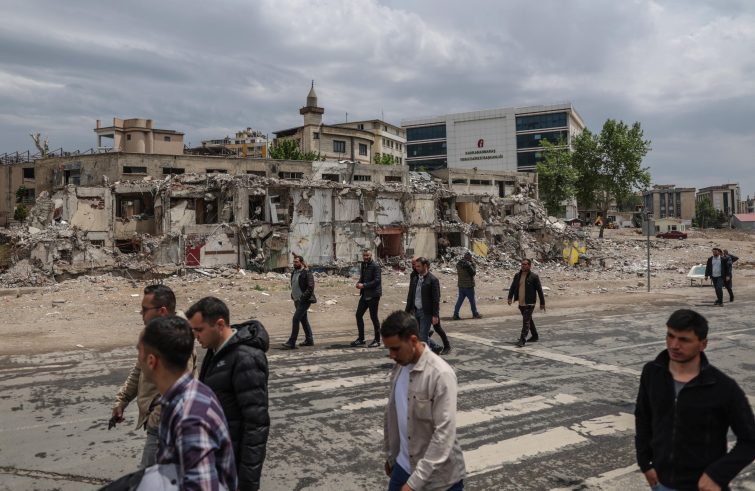
“I think it’s important that we, as members of the Catholic Church in Italy, continue to focus our attention on what happened in Turkey and the tragic consequences of last February’s devastating earthquake. It is mentioned too little and badly, which is why we need to raise awareness on the need for closeness and proximity of the local population, through our witness.” Father Marco Pagniello, National Director of Caritas Italy, has just returned from Turkey for an update on the situation after a devastating earthquake that hit Turkey and Syria on February 6, leaving an estimated 57,700 people dead. He was accompanied by a delegation from Caritas Italy made up of Fr Antonio De Rosa (Assistant for Studies) and Laura Stopponi (from the European team). “We had a meeting with Caritas Anatolia in Iskenderun,” continued Fr Marco. “In the Diocese of Anatolia alone, at least 3,200 buildings have to be demolished and more than 900 need to be rebuilt and made earthquake-proof. A large number of families are still living in makeshift tents or containers and are experiencing great hardship. In addition to losing their homes and jobs, most of them have lost their loved ones, all that was dear to them.”
Father Marco, what is the purpose of this visit?
The purpose of this visit is to say to this country: you are not alone! Caritas Italy has been cooperating with this Church for a long time, and we will continue to do so all the more in this critical situation, through the presence of our humanitarian workers who are here to cooperate with you, and through our presence in Italy, in response to our vocation of advocacy and spiritual animation.
What was your experience?
The situation is extremely difficult. It’s difficult to remove the rubble, which is causing high levels of pollution from dust particles, and there is a serious health crisis due to the lack of drinking water in many of the areas affected by the earthquake, coupled with the scorching heat. But I must say that we found a close-knit community committed to helping, a community ready to respond to the needs of the people affected by the earthquake and to accompany them, as they have done over the last few months. Not only the Christian community, but the whole local community has come together to help those who have lost their homes or loved ones. The solidarity is remarkable, as is the gratitude, but there is still much to be done. Moreover, it is not always clear how the government plans to carry out the reconstruction work. All the container homes and makeshift tent camps are full of displaced people. But the most important thing is that the communities want to play their part. The local community went back to work right away because they are convinced that the only way to overcome the current difficulties is to make their own resources available to them.
Based on what you have seen, what response activities are you planning?
As in every emergency, Caritas Italy works together with the local Caritas agencies, in this case the Caritas agencies operating in Turkey and other Caritas agencies within the international network, offering its know-how, its experience and the funds collected, largely the result of a national fundraising campaign and of the many voluntary contributions that we have received since the first days and that are continuing to be sent to our Caritas branches. Careful, subtle accompaniment for Caritas Turkey, accompaniment for the communities, a desire to remain present even after this first phase of the emergency, with a focus on women and minors who, as we have seen, are at high risk here. These women are strong and courageous, but they need to be supported in their work and in raising their children.
Is there a local organisation you can rely on for local responsiveness?
At this early stage, our efforts are aimed at identifying local organisations and groups with whom we can collaborate. Some initiatives are already underway. There are exchange agreements in many different areas and funding from Caritas Turkey and Caritas Italy to help those in need. These include refugees, especially Afghans, Kurds and Syrians, who, not least because of their large numbers, represent a major challenge that needs to be addressed in cooperation with other organisations. I believe that the reception and support of ethnic minorities, especially Syrians today, is the great challenge that we should take up, supporting, in this case, the diocesan Caritas of Anatolia, which we also accompany with the presence of our staff on the ground, in collaboration with the diocesan team, and for planning and monitoring activities.
Besides the necessary donations, how can we, as members of the Church in Italy, support the relief efforts of Caritas in Turkey?
I renew my appeal to the whole Church in Italy to pray for the people of Turkey. I also think it is important that we, as the Catholic Church in Italy, do not cease to focus our attention on the situation in Turkey. Unfortunately, the earthquake in Turkey and its thousands of victims have been overshadowed by the continuing complexity of the present time and its many crises. It is mentioned too little and too badly. We must therefore pray and be informed. Through our witness, we need to raise awareness on the need for closeness and proximity of the local population.

